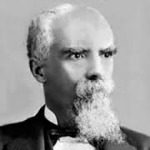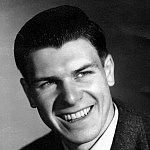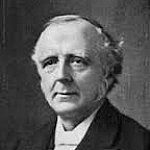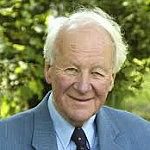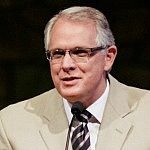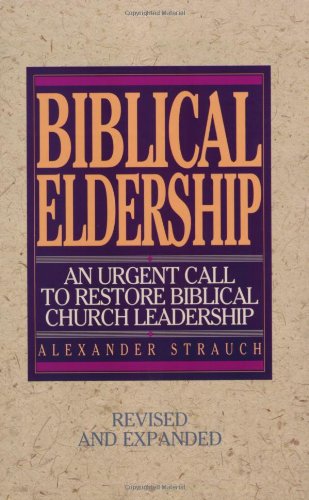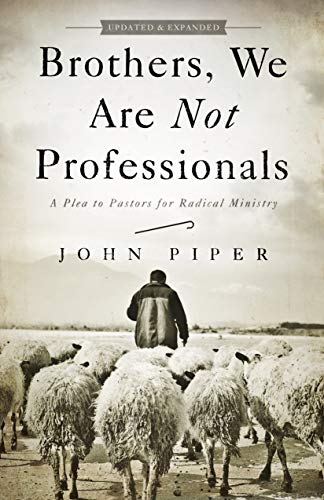Quotes about Pastoral_Ministry-Character
Eight reasons that ministers should examine themselves:
1. You have heaven to win or lose yourselves… A holy calling will not save an unholy man.
2. You have sinful inclinations as well as others.
3. (You) have greater temptations than most men.
4. The tempter will make his first and sharpest onset upon you. If you will be leaders against him, he will spare you no further than God restrains him.
5. Many eyes are upon you, and therefore there will be many to observe your falls.
6. Your sins are more aggravated than those of other men. They have more of hypocrisy in them, and are more detrimental to the cause of religion.
7. The honor of your Lord and Master, and of His holy truth, doth lie more on you than other men.
8. The souls of your hearers and the success of your labors do very much depend upon your self-examination.
Quoted in: Derek Prime and Alistair Begg. On Being a Pastor, Moody Press, 2004, p. 307-308.
It is an obvious error for all to see in those ministers of the Church who make such a wide gulf between their preaching and their living. They will study hard, to preach exactly, and yet study little or not at all to live exactly. All the week long is little enough to study how to speak for two hours; and yet one hour seems too much time to study how to live all the week. They are loath to misplace a word in their sermons; yet they think nothing of misplacing affections, words, and actions in the course of their lives. Oh, how curiously I have heard some men preach, and how carelessly have I seen them live!
[The pastor] is acquainted with the Holy Scriptures, he is exercised in holy duties, he lives not in open disgraceful sin, he serves at God’s altar, he reproves other men’s faults, and preaches up holiness both of heart and life; and how can this man choose but be holy?
A man that preaches an immortal crown, should not seek much after transitory vanity. And he that preaches the contempt of riches should himself contemn them and show it by his life. And he that preaches self-denial and mortification should practice these virtues in the eyes of them to whom he preaches, if he would have his doctrine believed. All Christians are sanctified; and, therefore, themselves, and all that they have, are consecrated “to the Master’s use.” But ministers are doubly sanctified: they are devoted to God, both as Christians and as ministers; and, therefore, they are doubly obligated to honor Him with all they have.
Too many of us [preachers] are earthly that seem to be heavenly, and mind the things below, while they preach the things above, and idolize the world while they call men to condemn it.
The young preacher has been taught to lay out all his strength on the form, taste, and beauty of his sermon as a mechanical and intellectual product. We have thereby cultivated a vicious taste among the people and raised the clamor for talent instead of grace, eloquence instead of piety, rhetoric instead of revelation, reputation and brilliancy instead of holiness.
What the minister is is far more important than what he is able to do, for what he is gives force to what he does. In the long run, ministry is what we are as much as what we do.
A preacher’s life should be a commentary of his doctrine; his practice should be a counterpart of his sermons. Heavenly doctrines should always be adorned with a heavenly life.
The lives of ministers oftentimes convince more strongly than their words; their tongues may persuade, but their lives command.
Ministers must know how to lose arguments on non-essential matters. Care must be taken not to harangue others into silence. Preachers have a way with words. Their whole career is related to the skillful communication of ideas. It is a disgraceful fact that some ministers love to talk and have a habit of dominating discussion on every subject. Even when ignorant on an issue, a preacher can usually out-talk knowledgeable men. Thus in a controversy it is possible to silence men by sheer force of verbiage without convincing them. How exemplary would it be if all ministers exercised self-control over their tongues in the church! It is to be feared that some men are able to handle texts of Scripture who cannot discipline themselves.
The Shadow of the Cross – Studies in Self-Denial, 1981, p. 63-64, by permission Banner of Truth, Carlisle, PA.
It is easier to declaim like an orator against a thousand sins in others than to mortify one sin in ourselves; to be more industrious in our pulpits than in our closets; to preach twenty sermons to our people than one to our own hearts.
Someone has said that more is learned from what is “caught” that “taught”… Though it is certainly important to communicate God’s Word didactically, it’s what people see in our lives that gives weight to our words. That is why the qualifications for elders are so important. If we are to “teach the Word of God” effectively, we must simultaneously “live the Word of God.”
Elders and Leaders, Moody, 2003, p. 267. Get this book!
Unholiness in a preacher’s life will either stop his mouth from reproving, or the people’s ears from receiving.
Those who teach by their doctrine must teach by their life, or else they pull down with one hand what they build up with the other.
It is a morbid and depressing fact that when it comes to adultery, there are too many casualties among pastors. Ministers are just as vulnerable as others. No area, no country, no denomination is immune. The damage done in each case is irreparable: the breakdown, as far as ministry is concerned, final. This is a distasteful subject, but we cannot shirk it. The matter demands faithful treatment. Let him who thinks that he stands take heed lest he fall.
God does not call all elders to be entrepreneurs, men who begin ministries and build them. Nor does He call all elders to be producers, men who accomplish a great amount of work in the church, although those are worthy things. Neither does He call all of them to be managers, adept at mobilizing others in the Lord’s service, although that, too, is a worthy thing. The Lord does, however, call all elders to be godly leaders, men who by their exemplary lives as well as their sound teaching and preaching set a pattern of virtue and devotion to the Lord for other believers to follow.
My people’s greatest need is my personal holiness.
How many of us, who are engaged in the Lord’s holy service, are secretly cherishing some proud aspiration of excelling other men, of making a name for ourselves, of securing money or fame! We will use the pulpit as a pedestal for the adulation of the world, and the cross for a post on which to hang garlands to our own glory. How often do we preach sermons, or make addresses, and attend meetings, with no other thought than to secure the recognition and praise of those to whom we “minister.” All of this must be laid aside. We must have no selfish, prideful ulterior motives to serve Christ.
I would not give much for all that can be done by sermons if we do not preach Christ by our lives.
The final estimate of men shows that history cares not an iota for the rank or title a man has borne, or the office he has held, but only the quality of his deeds and the character of his mind and heart (C.W. Hall).
It is beyond all question that this eminent piety is before everything else in preparation for the duties of the sacred office. It is before talents, or learning, or study, or favorable circumstances, or skill in working, or power in sermonizing. It is needed to give character and tone and strength to all these, and to every other part of the work. Without this elevated spirituality nothing else will be of much account in producing a permanent and satisfactory ministry. All else will be like erecting a building without a foundation… Oh that at the very beginning this could be deeply impressed upon the hearts of young ministers!… Without it success in the holy office is not to be expected (Thomas Murphy).
He who would be a faithful minister of the gospel must deny the pride of his heart, be emptied of ambition, and set himself wholly to seek the glory of God in his calling.
Quoted by Curtis C. Thomas, Practical Wisdom for Pastors, Crossway Books, 2001, p. 143. Used by Permission.
It is a terribly easy matter to be a minister of the gospel and a vile hypocrite at the same time.
The true shepherd spirit is an amalgam of many precious graces. He is hot with zeal, but he is not fiery with passion. He is gentle, and yet he rules his class. He is loving, but he does not wink at sin. He has power over the lambs, but he is not domineering or sharp. He has cheerfulness, but not levity; freedom, but not license; solemnity, but not gloom.
Let us aspire to saintliness of spirit and character. I am persuaded that the greatest power we can get over our fellow-men is the power which comes of consecration and holiness.
We preachers cannot expect to communicate verbally from the pulpit if we visually out of it contradict ourselves.
Between Two Worlds, Eerdmans, 1882, p. 78. Get this book!
We must heed the memorable words written by Robert Murray McCheyne to the Rev. Dan Edwards on 2 October 1840 after his ordination as a missionary to the Jews: “I trust you will have a pleasant and profitable time in Germany. I know you will apply hard to German; but do not forget the culture of the inner man – I mean of the heart. How diligently the cavalry officer keeps his sabre clean and sharp; every stain he rubs off with the greatest care. Remember you are God’s sword – His instrument – I trust a chosen vessel unto Him to bear His name. In great measure, according to the purity and perfections of the instrument, will be the success. It is not great talents God blesses so much as great likeness to Jesus. A holy minister is an awful weapon in the hand of God.”
Accountability questions asked of his fellow pastors:
1. Have you been with a woman anywhere this past week that might be seen as compromising?
2. Have any of your financial dealings lacked integrity?
3. Have you exposed yourself to any sexually explicit material?
4. Have you spend adequate time in Bible study and prayer?
5. Have you given priority time to your family?
6. Have you fulfilled the mandates of your calling?
7. Have you just lied to me?
There are a lot of temptations for pastors, one of which, because of our public role, is to think of ourselves more highly than we should. And in so doing, we can develop a tendency to depreciate those who are under our leadership. This can be manifested in a number of ways. Our messages can be occasions where we talk down to people. We can berate people about particular sins, though our own sins are just as heinous. We can assume a know-it-all attitude. We can conduct meetings in such a way that we take advantage of people or make light of their thoughts or suggestions. We can make public, veiled references to people. And we can use humor about our members from the pulpit at their emotional expense.
Practical Wisdom for Pastors, Crossway Books, 2001, p. 121. Used by Permission. Get this book!
We cannot make up for failure in our devotional life by redoubling energy in service. We shall never take people beyond our own spiritual attainment.
Learning without piety will only render you more capable of promoting the kingdom of the devil. Henceforward therefore I hope you will enter into your studies, not to get a parish, not to be a polite preacher, but to be a great saint… The more holy you are, the more will God delight to honor you. He loves to make use of instruments like Himself.
A ministry mentor, John MacArthur, has said to me on numerous occasions that “when a man falls, he doesn’t fall far.” In other words, a serious breach of leadership integrity does not occur in a vacuum. Men who have, by the grace of God, forged a pattern of moral veracity are not suddenly seduced by a life of lies and hypocrisy. Betrayal of this sort slowly percolates out of the heart over time with a host of smaller, virtually undetected compromises. When an integrity scandal breaks, the fall of that leader is more like a short hop!
Spiritual credibility springs from a holy and pure life. Righteousness may not get the popular vote, but it should have no rivals in the preparation of an effective leader. From the pulpit to the pew, nothing is more stabilizing, more admirable, more compelling among the leadership qualifications than our personal holiness.

